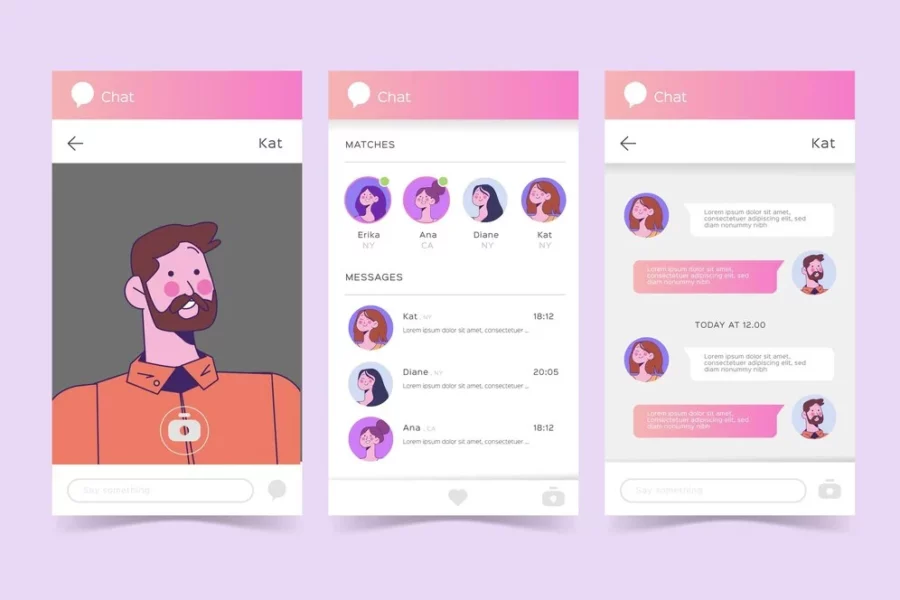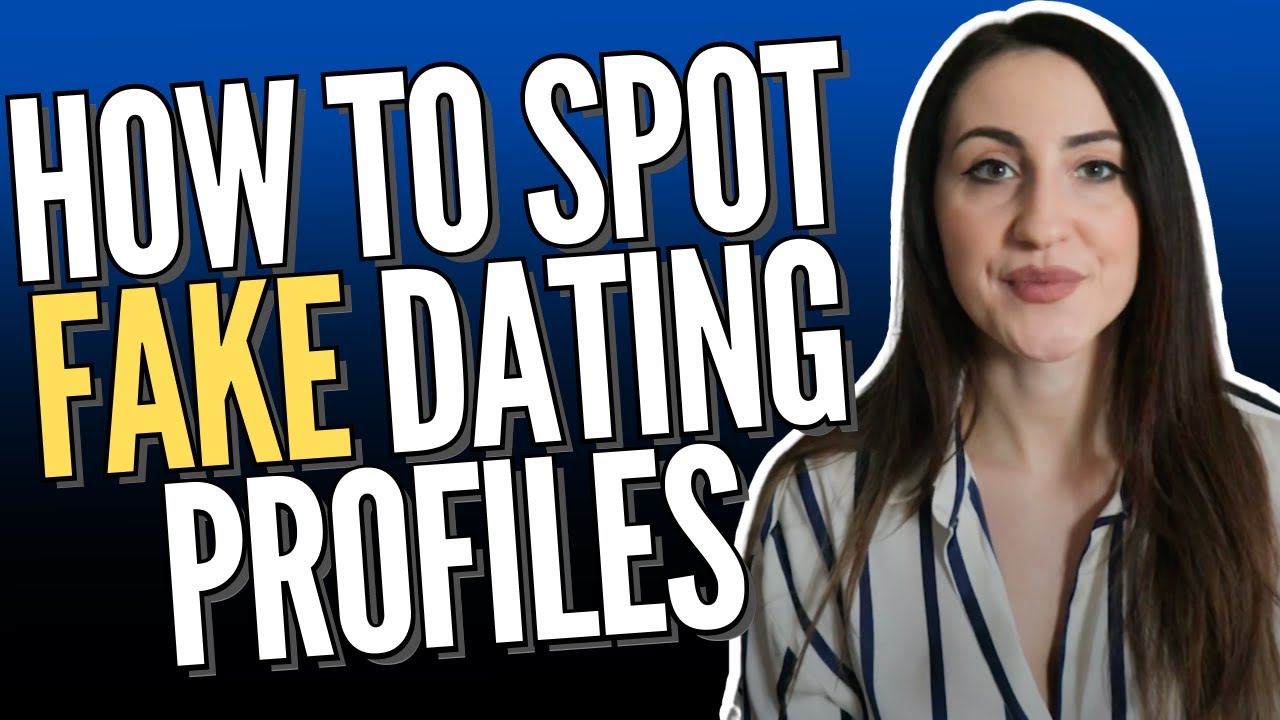Key Takeaways:
- While creating a fake profile may not always be illegal, it becomes a legal issue when used for fraud, impersonation, or harassment under false pretenses.
- Most dating apps prohibit fake profiles, and breaking their terms of service can result in being banned or reported to law enforcement if illegal activities occur.
- Misusing personal details, fake pictures, or engaging in any form of harassment through a fake profile can lead to serious legal action, including lawsuits or criminal charges.
Online dating has become a norm for many people seeking romantic connections.
With the rise of dating apps and websites, it’s easier than ever to create an online dating profile and start swiping, matching, and chatting with potential partners. However, with the ease of online dating comes the risk of fake accounts, which can lead to catfishing, scams, and emotional distress. But is it illegal to create a fake dating profile?
Protect Your Brand & Recover Revenue With Bytescare's Brand Protection software
What Constitutes a Fake Dating Profile?
A fake dating profile is a profile that misrepresents an individual’s identity, intentions, or characteristics.
Here are a few common ways people might create a fake persona online:
- Using False Pictures – Uploading photos that are not of the person in question, often from someone more attractive or famous.
- Fabricating Personal Information – This could be as simple as lying about your age or as complex as creating an entirely fictional identity.
- Catfishing – A more extreme form of impersonation where someone pretends to be another person entirely, often using their pictures, background, and even interacting with others in manipulative ways.
- Sockpuppeting – Creating multiple profiles to deceive or manipulate individuals, sometimes in the context of relationships or discussions.
Fake profiles can be created for various reasons, including to scam people out of money, to engage in catfishing, or to simply boost one’s ego.
Fake profiles may seem harmless at first glance, but depending on the intent, the effects can be far-reaching and legally complex.
Laws Related to Fake Profile Globally
India
The Information Technology Act, 2000 and the Indian Penal Code (IPC) have provisions related to fake profiles and online fraud.
Specifically, Section 66D of the IT Act states that whoever, by means of any communication device or computer resource, cheats by personation, shall be punished with imprisonment of either description for a term which may extend to three years and shall also be liable to fine which may extend to one lakh rupees.
Additionally, Section 416 of the IPC deals with cheating by personation, and Section 468 deals with forgery for the purpose of cheating.
United States
The Federal Trade Commission (FTC) has taken action against online dating sites that use fake profiles to lure customers into paid subscriptions.
European Union
General Data Protection Regulation
The General Data Protection Regulation (GDPR) regulates fake dating profiles by applying its provisions on personal data protection, even though it doesn’t explicitly mention them.
Fake profiles often use false or misleading personal data, which falls under the GDPR’s definition of personal data. This includes names, photos, and biographies used to deceive users. Online dating sites must process this data lawfully, transparently, and with user consent.
Failure to comply can result in penalties and fines. The GDPR’s data protection principles, such as data minimisation and transparency, also apply to fake dating profiles.
Unfair Commercial Practices Directive (UCPD)
The UCPD prohibits deceptive and misleading commercial practices. Fake dating profiles often involve misleading information, such as false identities or exaggerated claims. This can be considered a deceptive commercial practice, as it intentionally misleads users into believing false information.
Additionally, fake profiles can be used for fraudulent purposes, such as financial scams or emotional manipulation. This also falls under the UCPD’s prohibition of unfair commercial practices. Therefore, while the UCPD doesn’t explicitly mention fake dating profiles, it can be used to address the deceptive and harmful nature of these practices.
Australia
ACCC
The Australian Competition and Consumer Commission (ACCC) has taken action against online dating sites that use fake profiles to lure customers into paid subscriptions.
Spam Act 2003
The Spam Act 2003 is an Australian law that regulates commercial emails, including those sent by online dating sites. Specifically, the Act prohibits sending commercial emails that are deceptive or misleading. This includes emails that promote fake dating profiles, as they are likely to deceive or mislead recipients into believing they are interacting with a real person.
Although the Act does not explicitly mention fake dating profiles, it prohibits three key aspects that can be applicable to fake dating profiles: deceptive and misleading commercial emails, false or misleading information, and unsolicited commercial emails. These provisions can be used to regulate fake dating profiles, even if they are not explicitly mentioned.
Canada
Competition Bureau
The Competition Bureau has taken action against online dating sites that use fake profiles to lure customers into paid subscriptions.
Canadian Anti-Spam Legislation
The Canadian Anti-Spam Legislation (CASL) also prohibits deceptive and misleading commercial emails, including those used to promote fake dating profiles.
Key Points to Note
- Laws related to fake dating profiles vary by country, but there are common themes and international efforts to combat online fraud and scams.
- Creating a fake dating profile is not inherently illegal, but using it to scam or defraud others is a criminal offense in many jurisdictions.
- Online dating sites and users have a responsibility to ensure that the online accounts are genuine and not misleading.
Punishment for Creating Fake Profile
The punishment for creating a fake dating profile varies by country, with fines and imprisonment for fraud, identity theft, and related offenses.
In India, the punishment is severe, with imprisonment up to 3 years and a fine of up to ₹1 lakh. In the United States, the Identity Theft and Assumption Deterrence Act of 1998 makes identity theft a federal crime, punishable by up to 25 years imprisonment and a $250,000 fine.
Protect Your Brand & Recover Revenue With Bytescare's Brand Protection software
Is It Illegal to Create a Fake Dating Profile: Legal Implications

Creating a fake dating profile is a significant issue because it can lead to legal consequences, social embarrassment, and emotional distress.
The consequences of getting caught can be severe, and it’s essential to know the legal implications of creating a fake accounts.
Impersonation and Identity Theft
One of the most obvious legal concerns arises when someone impersonates another individual by using their name, photos, or personal information to create an online profile. In this scenario, we enter the realm of identity theft or impersonation, which can be illegal depending on the jurisdiction.
- U.S. Law: In the United States, many states have laws regarding identity theft that can include online impersonation. According to the Identity Theft and Assumption Deterrence Act (1998), it’s a federal crime to use someone else’s personal information with the intent to deceive or commit fraud.
- State Laws: Many states have specific laws targeting online impersonation, especially on social media. For example, in Texas, online impersonation is a crime punishable by fines and jail time (up to 1 year). In California, impersonating someone with the intent to harm can lead to fines and civil damages.
Harassment or Stalking
Another legal consequence arises if the fake profile is used to harass, stalk, or cause emotional harm to someone else. In this case, laws related to cyberstalking or harassment could come into play.
For example, if someone creates a fake profile to engage with a former partner or to deceive a romantic interest into revealing personal information, this could cross the line into illegal behavior. Many countries, including the United States, the UK, and Australia, have strict laws surrounding cyber harassment that could cover actions performed using a fake profile.
So, while creating a fake dating profile in itself may not automatically land you in legal trouble, using it for malicious intent such as harassment or emotional manipulation likely will.
Fraud
If the creation of the fake profile involves attempting to deceive someone out of money or property, then we’re looking at fraud. Romance fraud are unfortunately common, with fraudsters creating fake profiles to prey on individuals for financial gain. These scams can have devastating financial and emotional consequences for the victims.
For instance, in 2021, the Federal Trade Commission (FTC) reported that Americans lost a staggering $547 million to online dating scams. Scammers typically use fake profiles to build trust and manipulate their victims into sending them money. This is unequivocally illegal, and people caught engaging in this kind of activity can face serious criminal charges.
Consequences of Getting Caught

If you’re caught creating a fake dating profile, you can face a range of consequences, including:
Getting Banned from Platforms
If you’re caught creating a fake profile on most dating platforms, there’s a good chance you’ll be banned. Many popular platforms like Tinder, Bumble, and OkCupid have strict policies against fake profiles. If reported, you could lose access to your account permanently.
Reputation Damage
If the fake profile is exposed, it can cause significant damage to your personal reputation, both online and offline. Word travels fast on the internet, and once your deception is revealed, it can be hard to shake off the stigma. Whether it’s within your circle of friends or in a broader context, having your name associated with catfishing or deception isn’t something most people want.
Impact on Real Relationships
If you’re using a fake profile to cheat or deceive someone, it’s almost guaranteed to have a negative impact on any real-life relationships you may have. Partners, friends, and family are unlikely to look kindly on someone who engages in deceptive behavior online, especially in a context as personal as dating.
Protect Your Brand & Recover Revenue With Bytescare's Brand Protection software
Why Creating a Fake Profile is Never Worth It
While creating a fake dating profile may seem like an easy way to gain attention or validation, it’s never worth the risk. Here are some reasons why:
Honesty is the Best Policy: Authenticity is crucial for building any meaningful relationship. Creating a fake profile sets a foundation of lies, which can lead to guilt, shame, and anxiety over being discovered. It’s impossible to build trust when your entire identity is fabricated.
You’ll Get Caught: With modern technology and the rise of verification tools on dating platforms, fact-checking someone’s digital identity has become easier than ever. False accounts are often detected, and once caught, the potential consequences can range from being banned from the platform to facing legal trouble if harm is caused.
You’ll Miss Out on Genuine Connections: Forming meaningful relationships requires openness and honesty. By maintaining a counterfeit profiles, you’ll be trapped in a cycle of deception, preventing you from experiencing real, authentic connections. The emotional toll of continuously lying can also be exhausting, leaving you isolated and unfulfilled.
Ultimately, the risks far outweigh any potential short-term benefits, making fake profiles a poor choice for anyone seeking genuine interaction.
What’s Next?
Creating a fake dating profile can be considered a form of harassment and a breach of online privacy.
It can lead to significant legal consequences, especially when it violates terms of service or engages in illegal activities such as catfishing or identity theft.
Using false pretenses to deceive others can result in legal action, including fines and penalties. Fake profiles often involve the use of fake pictures, stolen personal details, or fabricated social media profiles. This can compromise the identity of people using the app and undermine the trust of genuine profiles.
Law enforcement agencies take such cases seriously, and app users can report suspicious activity to protect themselves and others.
To maintain your online reputation and protect your brand, consider using tools like Bytescare Fake Profile Remover to detect and eliminate fake profiles. Schedule a demo today to learn more.
The Most Widely Used Brand Protection Software
Find, track, and remove counterfeit listings and sellers with Bytescare Brand Protection software

FAQs
Is catfishing illegal?
Yes, catfishing, which involves using a fake online identity to deceive or manipulate others, is a form of fraud and can be illegal.
Can I use fake pictures on my dating profile?
No, using fake pictures or stolen personal details on a dating profile is a form of deception and can lead to legal consequences.
How can I report a fake dating profile?
You can report suspicious activity to the dating app or website, or to law enforcement agencies if you believe you have been a victim of fraud or harassment.
How can I protect myself from fake dating profiles?
Be cautious when interacting with others online, verify profiles through multiple sources, and report suspicious activity to the dating app or website.
Can I sue someone for creating a fake dating profile?
Yes, if you have been a victim of fraud or harassment as a result of a fake dating profile, you may be able to take legal action against the perpetrator.
What can I do to maintain a safe and respectful online community?
Prioritise authenticity, respect the boundaries of others, and report suspicious activity to help maintain a safe and respectful online community.
Ready to Secure Your Online Presence?
You are at the right place, contact us to know more.


